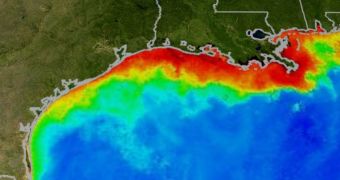Oceanology experts are in turmoil, as new discoveries point to the fact that the number of dead zones in Earth's oceans has increased substantially over the last four decades. In other words, the number of these no-oxygen zones is increasing two-fold every ten years. The truly surprising part is that these areas seem to double in both size and frequency of appearance. Furthermore, their vast majority is located near coastal waters that constitute rich commercial fishing grounds.
Oceanic dead zones are areas near the coastlines that have been severely influenced by pollution and chemical spills over the years. As a direct result, more and more algae form, which results in the exponential growth of oxygen-consuming bacteria that feed off dead algae. This vicious circle seems to be unstoppable, especially now that extensive fishing and heavy industrial activities on the coastlines are on the rise.
Almost 25 percent of the U.S. chemical production capabilities are concentrated in the Gulf of Mexico, which means that petroleum and other dangerous byproducts of various processes are spilled into the water on a daily basis.
Most oxygen safety levels in the waters were established in 1983, based on observations of shrimp populations and the way they migrated to other areas when their natural habitat was endangered. The measurements indicated that less than two milligrams of dissolved oxygen per liter constituted enough reason for most species to leave. So, the standard was set at 4.6 milligrams per liter, just to make sure.
Now, as more and more areas become depopulated, it appears that the standard was too low, affecting extremely productive fishing areas. Robert Diaz, a biologist at the Virginia Institute of Marine Science, said, “The dead zones are occurring in areas that are very productive fishing grounds. Everything is pointing towards a more desperate situation in all aquatic systems, freshwater and marine. That's pretty clear. People should be worried, all over the world."

 14 DAY TRIAL //
14 DAY TRIAL //